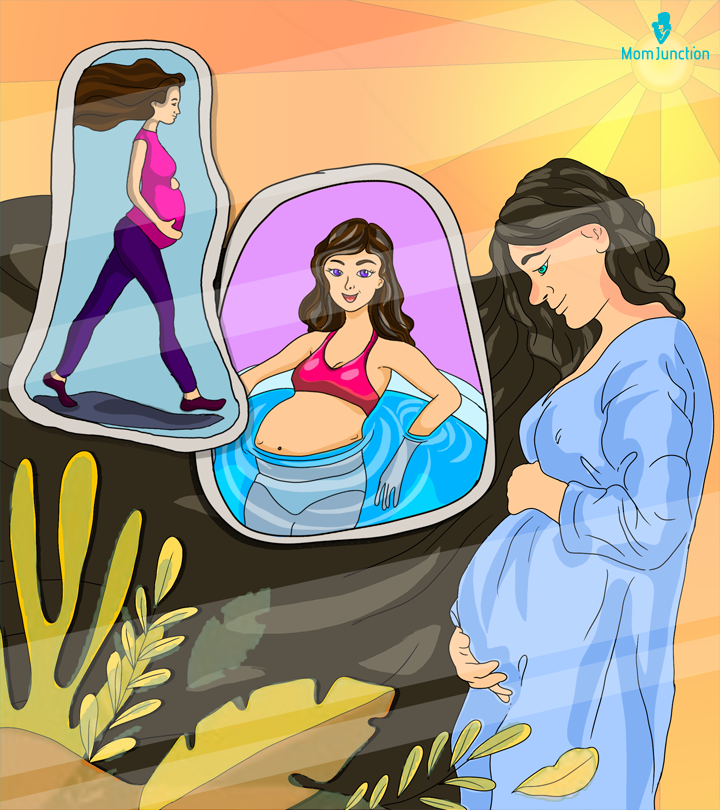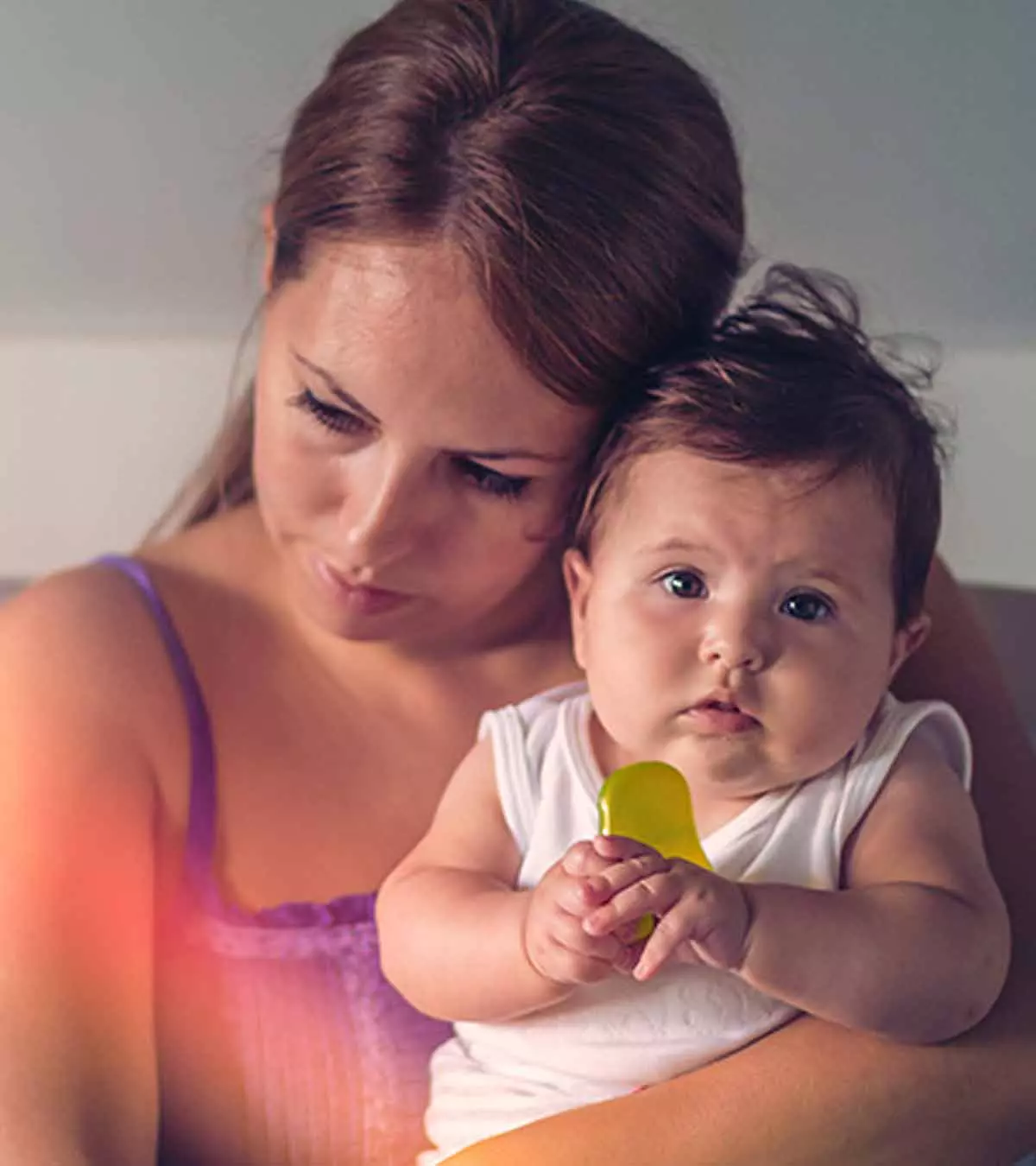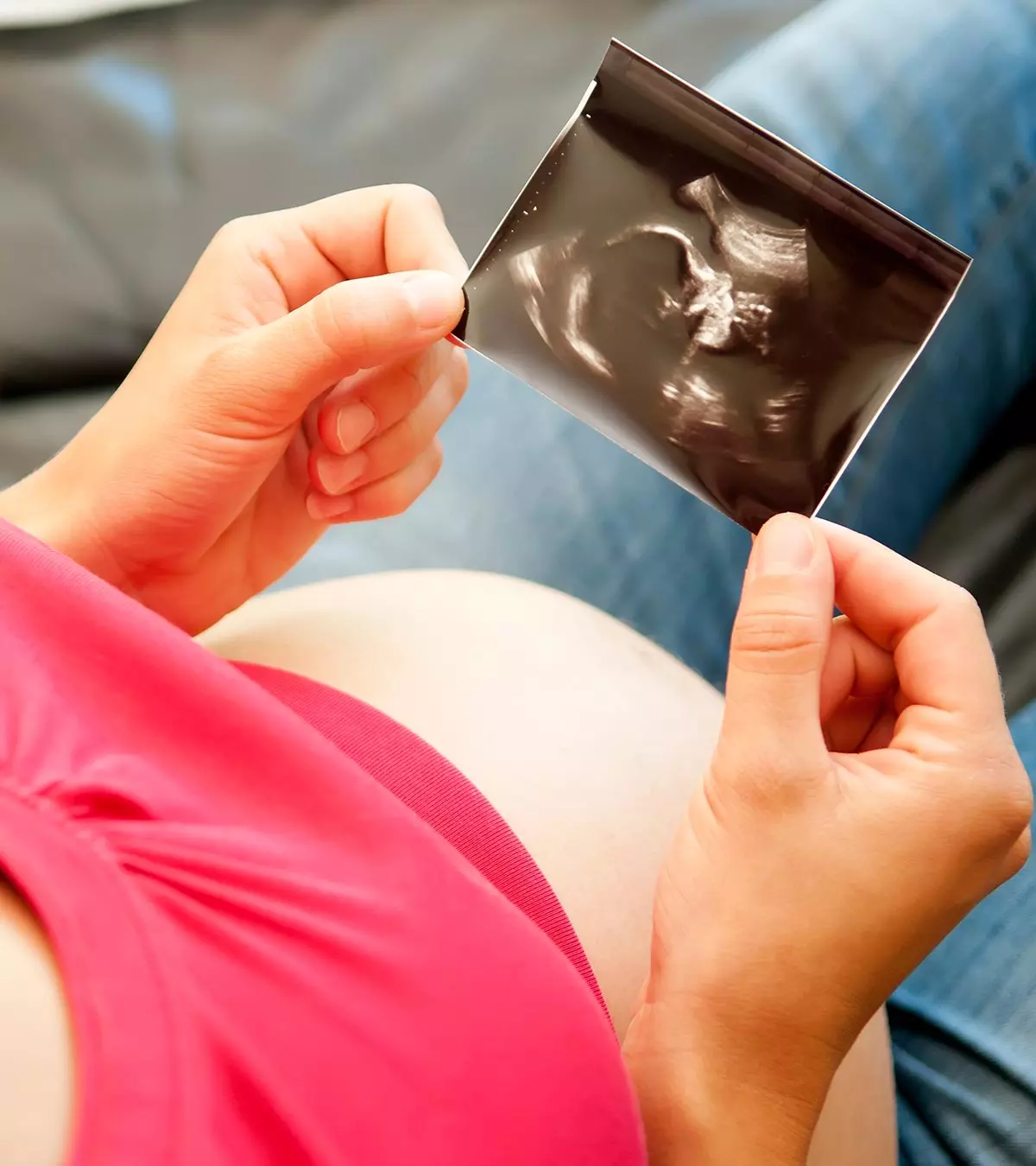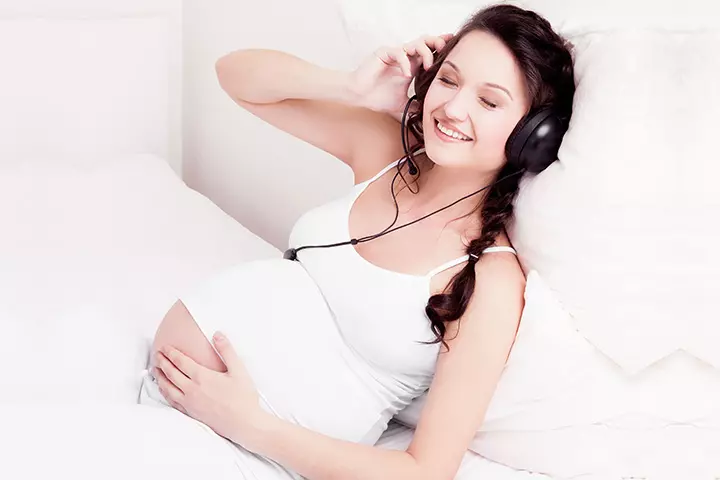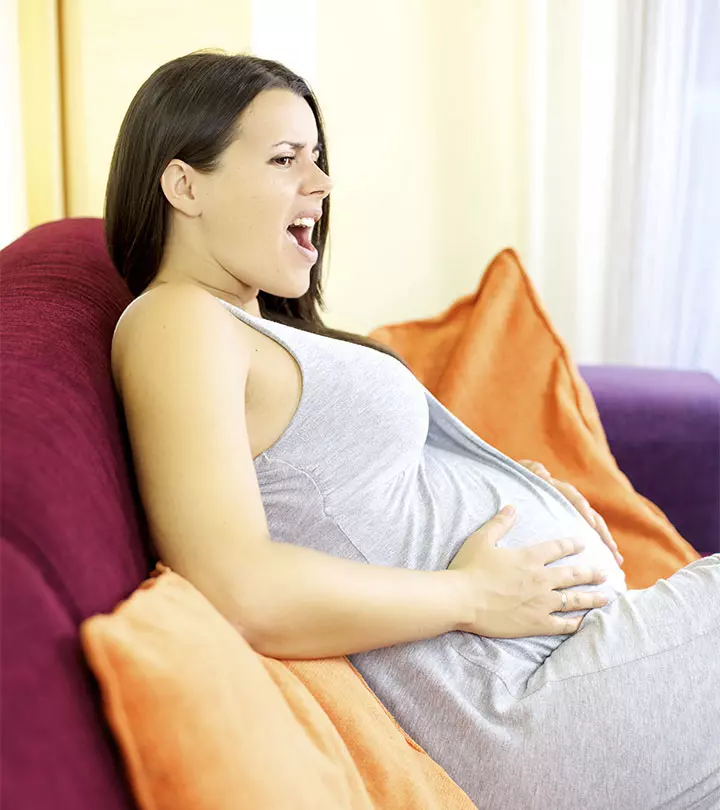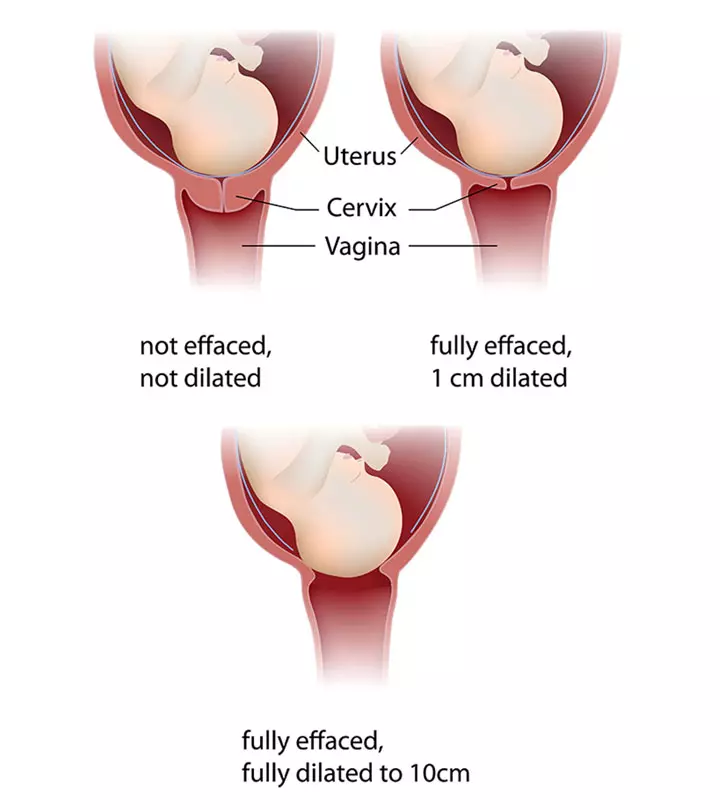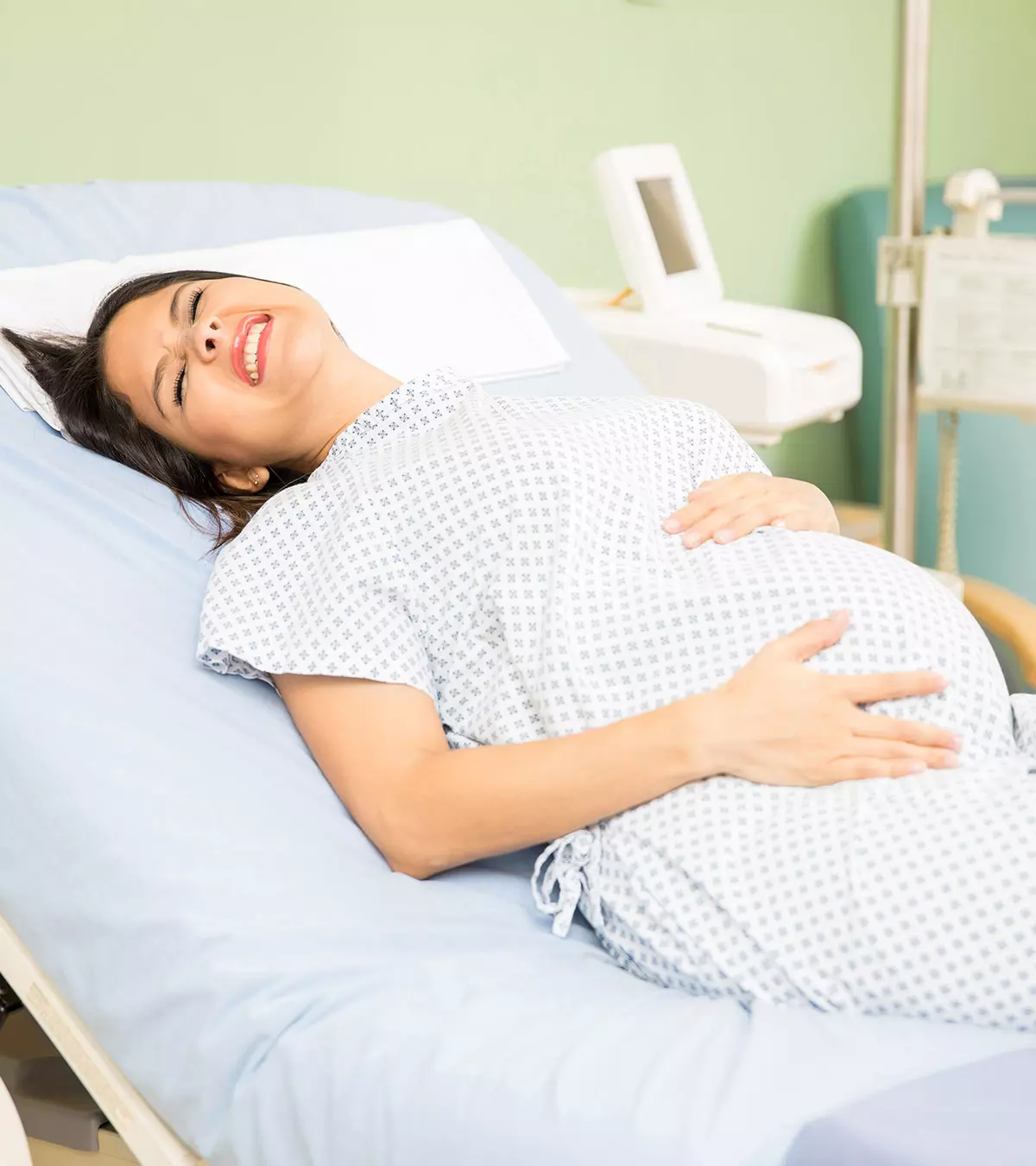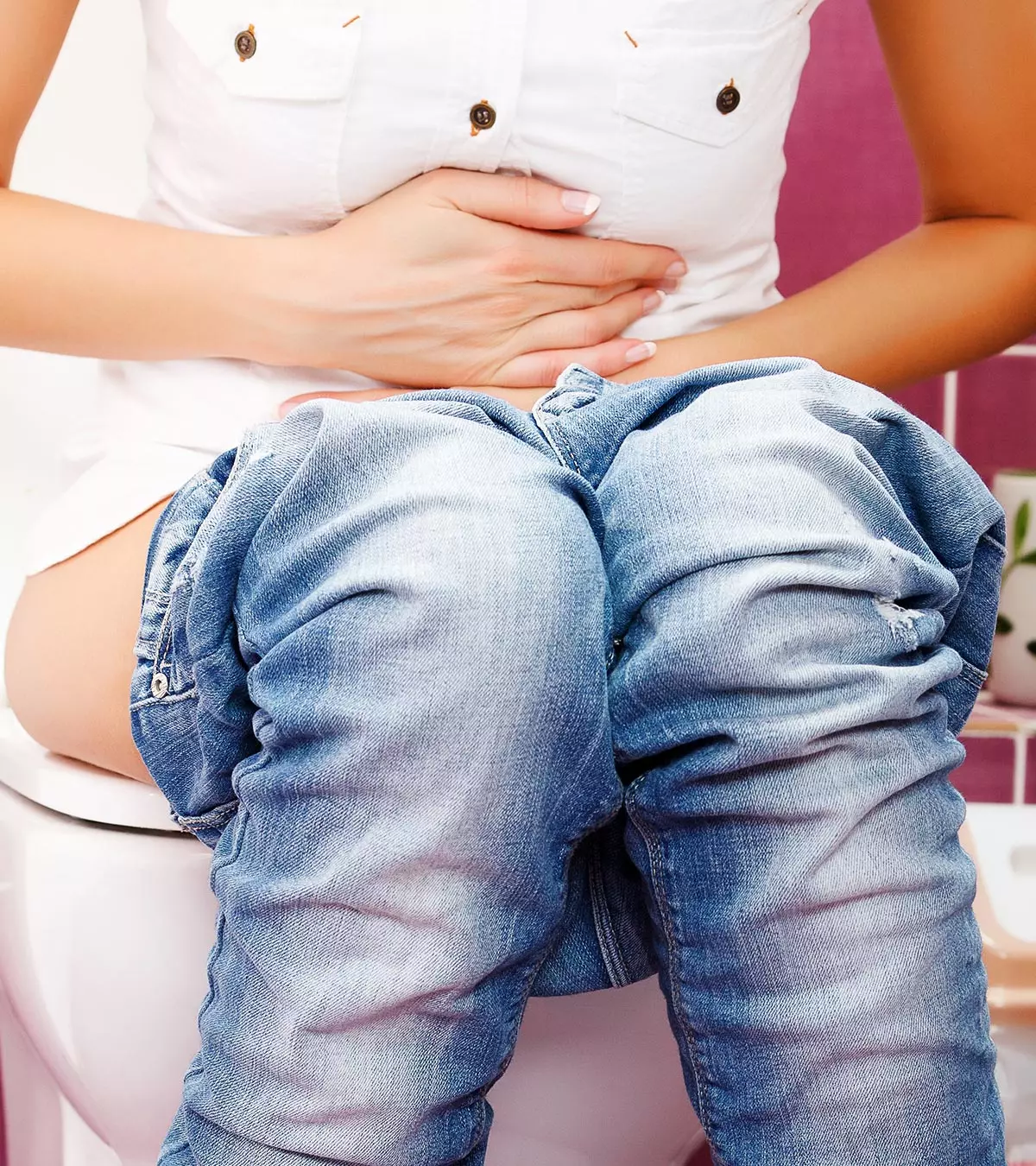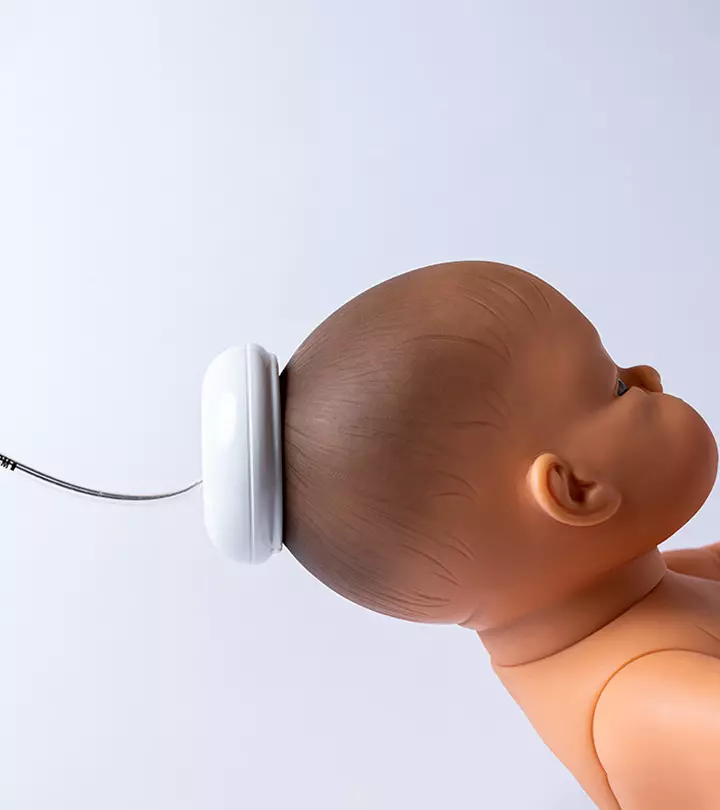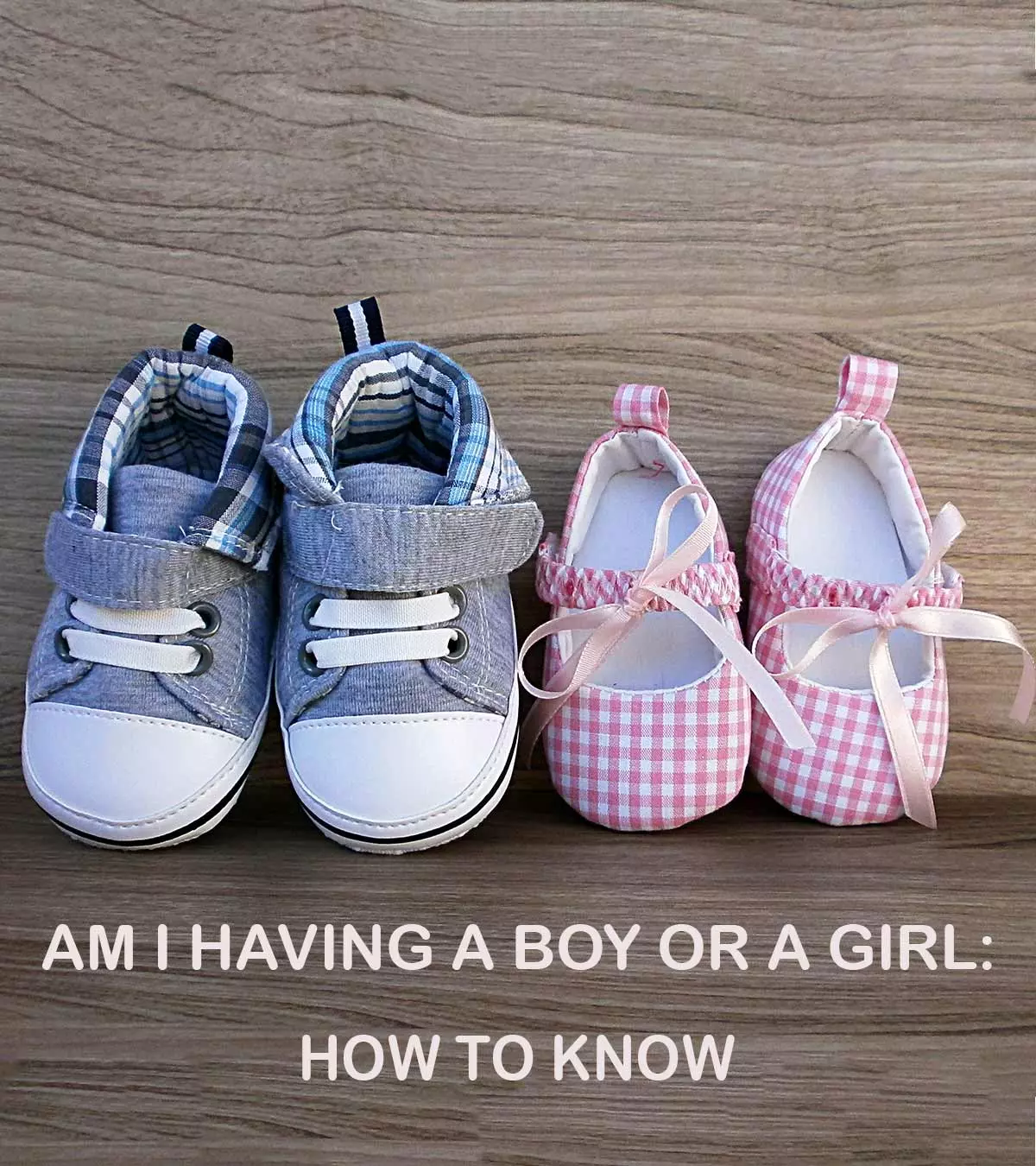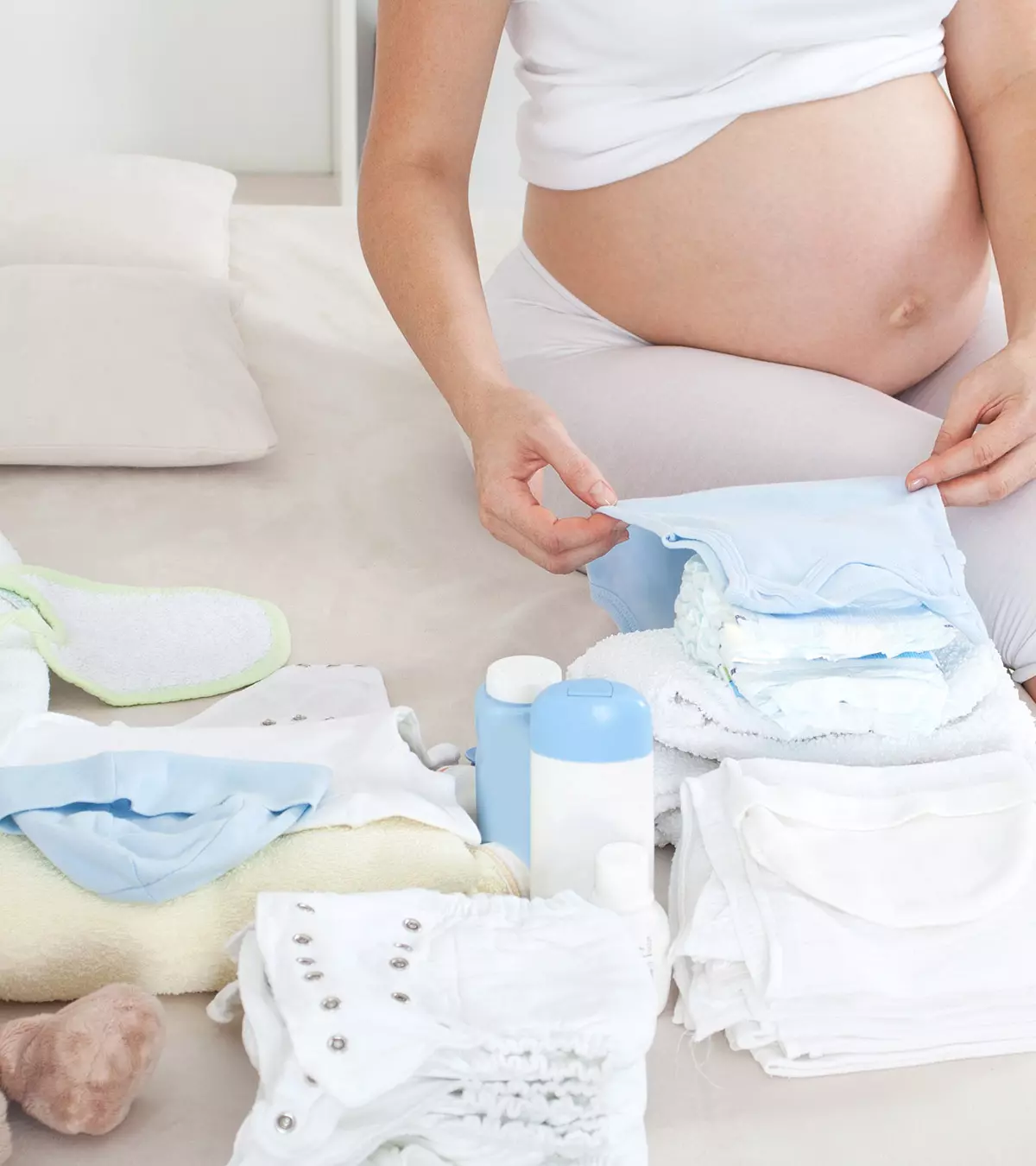
Image: Shutterstock
While a healthy vaginal birth may only need a day or two in the hospital, a cesarean (C-section) delivery may necessitate a longer stay.
Therefore, if you are scheduled for one, given below is a list of things to pack in a hospital bag for a C-section. Packing your hospital bag early can ease stress and ensure you have everything needed for comfort and recovery after delivery.
Over the past years, the cesarean delivery rate has shown an upward trend. According to a Centers for Disease Control and Prevention report, the cesarean delivery rate was 32.1% in 2021. Cesarean birth usually necessitates a few days of relaxation and a hospital stay after that, including a stay of at least one day before delivery and anywhere between four to five days after the delivery. For example, the Mount Sinai Hospital states an average of 2-4 days of hospital stay post-surgery (1).
This post includes a comprehensive list of items to include in a hospital bag, as well as a checklist that you may download or print at your convenience.
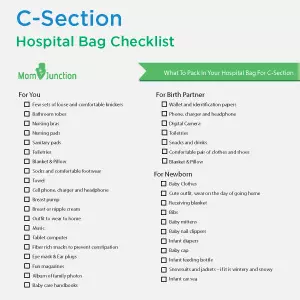
Categorizing will help you pack effectively and correctly, without forgetting any essentials. A few key things to remember here are:
- It is always possible that your baby may arrive unannounced and before time. Do pack your hospital bag for cesarean delivery in advance, preferably once you hit the third trimester.
- It is best to have a separate bag for you and baby.
- Your partner will most likely be staying over with you in the hospital, so packing a bag for him is also a good idea.
- You will most likely not have too much storage space at the hospital. It is a good idea to keep a few things in your car or ready in a bag at home. Your partner can always go and get it when needed.
Key Pointers
- The hospital bag should be packed in categories, including one for the mother, partner, and baby.
- The mother’s hospital bag should include personal identification, medical records, comfortable clothing, nursing bras, nursing pads, sanitary pads, toiletries, and snacks.
- Other items to pack in the mother’s hospital bag include a pillow, cellphone charger, breast pump, and activity books for older children.
- The partner’s hospital bag should include a change of clothes, toiletries, and snacks.
- The baby’s hospital bag should include a going-home outfit, diapers, wipes, and blankets.
What To Pack In A Hospital Bag For C-Section?
1. Everything you need for yourself
The American Pregnancy Association mentions a list of articles that may be useful during your hospital stay (2). We have used its help to compile a detailed hospital bag checklist for a potential C-section procedure. Make sure you check and add or remove items as needed and convenient.
Your picture ID (drivers license, for instance).
- All your documents and other paperwork you may need at the hospital for insurance.
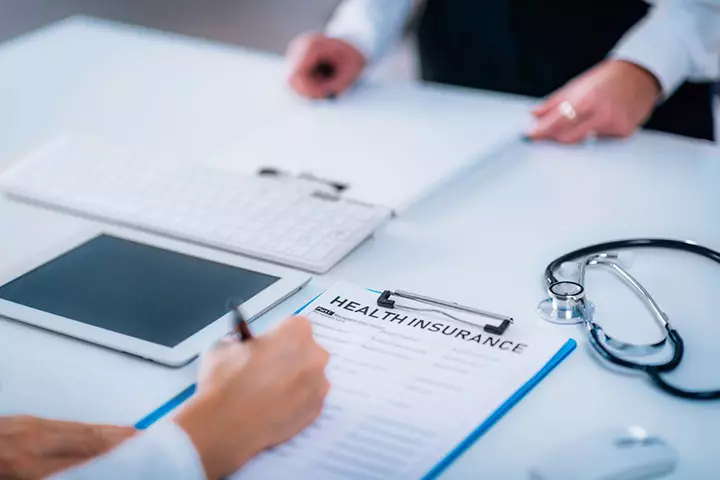
- All your hospital paperworks and files.
- Your wallet with cash (also some change) and card.
- A few sets of loose and comfortable pajama bottoms and loose shirts or shirts with buttons. You will be able to feed better if you wear clothes that have buttons. Alternatively, you can wear maternity clothes that enable you to feed your child. Bring along dark colored clothes to hide stains. Before the day of the surgery, you will be given hospital clothes to wear.
- Change of postpartum underwear (make sure the waistband does not hurt the incision area and is not too tight).
- Breastfeeding supplies like nursing pillows and bras.
- Nursing pads – you will most likely be leaking a lot in the first few days.
- Nursing cover – it will help you nurse your baby in case you need to do so in front of others.
- Sanitary pads – you may need to wear a special one that needs to be used after a C-section surgery. Ask your doctor about it beforehand.
- Supportive items (pillow, socks, etc)
- Comfortable shoes.
- Towel – for a shower at the hospital.
- An outfit for the time when you will take the baby home.
- Toiletries – toothbrush and toothpaste, comb, hair ties, chapstick or lip balm, some gentle body lotion, deodorant, a body wash, shampoo, moisturizer for your face, and some basic makeup that will help cheer you up a little while you are at the hospital. The University of Washington Medical Center asks you not to shave around the surgical area before the c-section to prevent infections, so you need not carry a hair-removal kit (3).
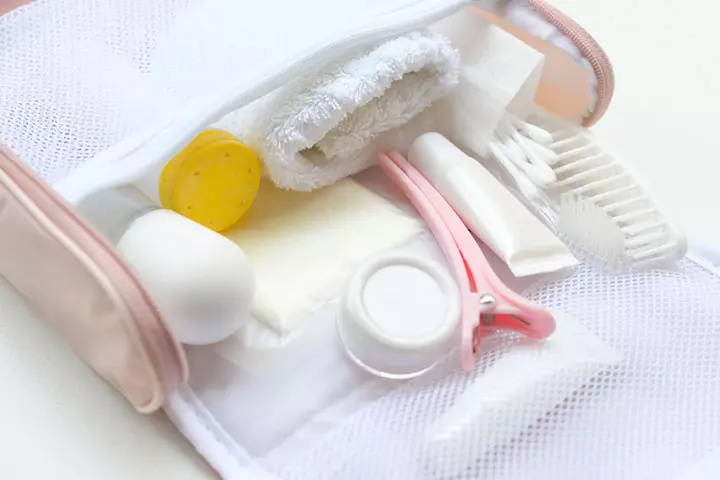
- Pillow and pillow case – in case you are the kind of person who cannot sleep on any pillow, it is a good idea to carry your pillow.
- Cell phone, phone charger, and headphone.
- You may get bored during the time you spend before surgery, so you need some entertainment (books, music, etc).
- If you have other kids – pack a few welcome gifts for them too. With all the attention on the new member, your kids may feel a little left out. Hand them a gift when they come to visit their new sibling.
- An album of family photos – your kids will be pleased with the visitors when they pay attention to their pictures as well.
- A camera or video camera to capture the best moments in the hospital.
- Breast pump – in case there are any issues with feeding. Most hospitals provide this, but carry one to be on the safe side.
- Breast or nipple cream – you may experience dryness and cracking in the first few days. Applying cream will help.
- Eye-glasses – you will not be able to handle contact lenses in a hospital bed.
- Bathroom robes.
- An outfit to wear to go home.
- Bring some music along – it will help you overlook the pain at the time of healing.
- Tablet computer (or laptop) and charger – it will keep you entertained.
- Mobile phones and charger – it will help you stay connected with your near and dear ones.
- Get activity books or kits for your older children so that you can keep them busy if they have to spend long hours at the hospital.
- Fiber-rich snacks – it helps prevent constipation.
- Have loads of mouth-fresheners – they will help you alleviate the sick feeling.
- Eye mask – will help you relax while your partner or visitors want to use the lights.
- Ear plugs – to ward off the noise.
- Fun magazines – you wouldn’t be able to read a book, but flipping through the pages of a magazine is what you could do.

- Baby care handbooks – it might be a good idea to keep this with you, even while your nurse and medical practitioners help you.
A mother of three triplets shares what clothes she packed for her hospital bag, “I brought all of my maternity stretchy comfy yoga pants and tanks. I had hot flashes, and the NICU rooms were kept super warm, so I was constantly sweaty and hot. It was nice to have tanks that I could pull down for nursing, and I brought a sweater if I got cold (i).”
 Quick tip
Quick tip2. Everything you need for your partner
Your partner will be running in and out of your room, but he will be spending all or most of his time at the hospital. Pack wisely:
- Your partner’s wallet and identification papers.
- Change for vending machines.
- Your partner’s phone, charger, and headphones.
- Toothbrush and toothpaste.
- A comfortable pair of clothes.
- Socks and comfortable footwear.
- Blanket – your partner may be waiting for you in the waiting area or sleep on the couch. He will surely need an extra blanket to be comfortable.

- Pillow – to help him rest and be fresh and ready to take care of you and baby!
- Mobile phone and charger – ask him to carry his cell phone and the charger along.
- Keys – make sure your husband carries his house and car keys!
 Quick tip
Quick tip3. Everything you need for your baby
Some hospitals provide baby clothes for the first few days while many do not. Also, most hospitals ask you not to use any products on your baby for the first few days after surgery.
Here are a few things you should pack and keep ready:
- Onesies with socks at the end.

- Receiving blanket – you will need to swaddle the baby. Even if the hospital provides this for your baby, carrying your own will be helpful to keep your baby warm.
- Baby cap – it helps the baby feel warm. It takes him time to adjust to the external environment.
- Baby mittens.
- Baby nail clippers.
- Infant diapers.
- Bibs
- Snowsuits and jackets – if it is wintery and snowy.
- Baby moisturizer – after the nurse helps give the baby a bath, you could apply baby moisturizer to prevent chafing.
- Infant feeding bottle – this will help if the baby faces any latching problems.
- A cute outfit that the baby will wear on the day they go home.
- Infant car seat – that needs to be fitted before you reach the hospital.
 Quick tip
Quick tipCheck with your doctor about any specific hospital rules and regulations to know what you can and cannot take. But the following are a no-no to be carried to any hospital:
- Jewelry
- Too much cash
- Valuables
- If you are carrying electronic equipment, make sure they have a place to store them at the hospital or your partner takes full charge of such stuff.
Frequently Asked Questions
1. Will I need a peri bottle after C-section?
A Peri bottle may be useful after a C-section especially when you have undergone labor prior to the surgery. The bottle will help you clean the perineal area every time you use the washroom.
2. Do you need perineal ice packs after C-section?
A pre-planned C-section may not require perineal ice packs, but they may be useful if you have undergone labor for some time. The ice pack may help alleviate swelling and pain in the perineal region.
3. How many maternity pads do I need after C-section?
The number of maternity pads needed after a C-section can vary depending on an individual’s blood flow. However, having a minimum of 20 maternity pads with you during your hospital stay after a C-section is generally recommended.
Categorize things according to your necessities and requirements while you are packing your hospital bag for a C-section delivery. It is advised to carry enough comfortable outfits that you can change as the time of discharge after a C-section might differ from that of a normal delivery. Make a list with your partner, who can carry all the essential documents and things you will need for the baby. It is better to keep your bag ready in the third trimester, well before your last week of pregnancy, as it takes off the load for an additional job and will help during an emergency run.
Infographic: Things To Pack In A Hospital Bag For C-Section
A C-section is a major surgery that usually requires a hospital stay of several days. If you are scheduled for a cesarean delivery, it is essential to prepare by listing the key items you will need. Below is an infographic outlining the items to pack for your C-section delivery to ensure a comfortable and stress-free hospital experience.
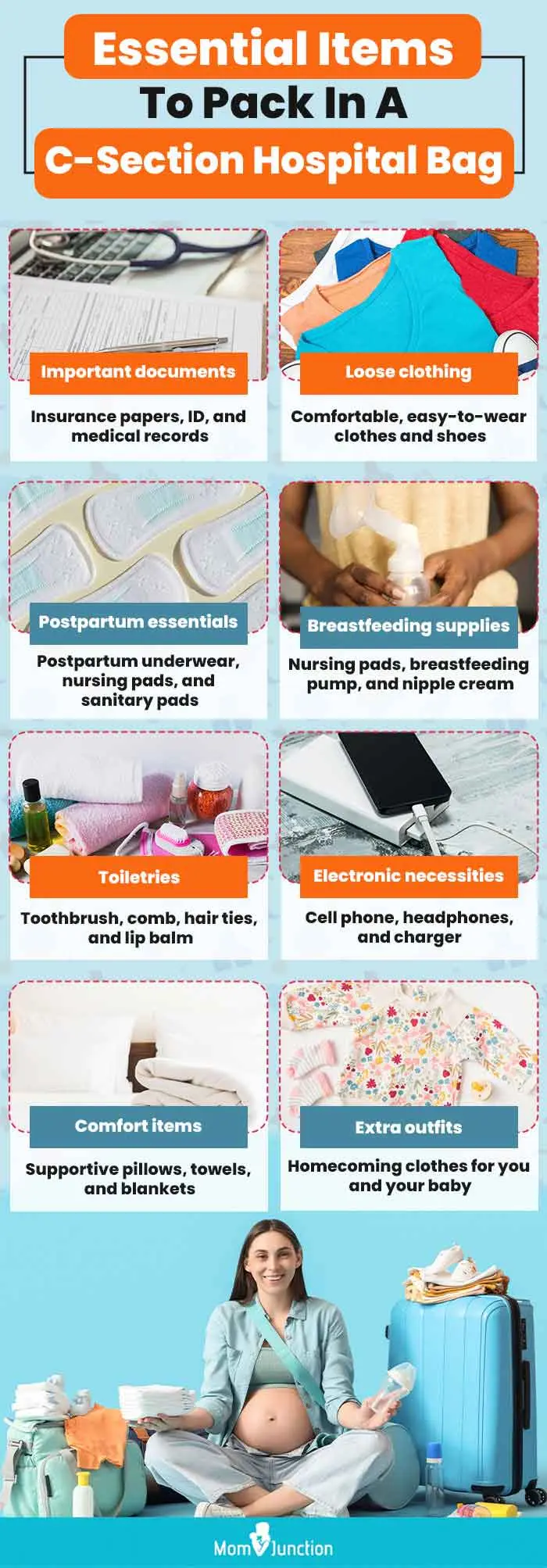
Illustration: Momjunction Design Team
Illustration: Things To Pack In Hospital Bag For A C-Section

Image: Stable Diffusion/MomJunction Design Team
Personal Experience: Source
MomJunction articles include first-hand experiences to provide you with better insights through real-life narratives. Here are the sources of personal accounts referenced in this article.
i. Hospital bag for a triplet C-section.https://littletaylortrio.blogspot.com/2017/01/hospital-bag-for-triplet-c-section.html
References
- Going home after a C-section
https://www.mountsinai.org/health-library/discharge-instructions/going-home-after-a-c-section - Hospital Bag Packing List
https://americanpregnancy.org/healthy-pregnancy/labor-and-birth/hospital-bag-packing-list/ - Preparing for Your C-Section
https://www.uwmedicine.org/sites/stevie/files/2018-11/Preparing-Your-C-Section-English.pdf
Community Experiences
Join the conversation and become a part of our nurturing community! Share your stories, experiences, and insights to connect with fellow parents.
Read full bio of Dr. Miguel Angel Razo Osorio
Read full bio of shreeja pillai
Read full bio of Rebecca Malachi
Read full bio of Aneesha Amonz










